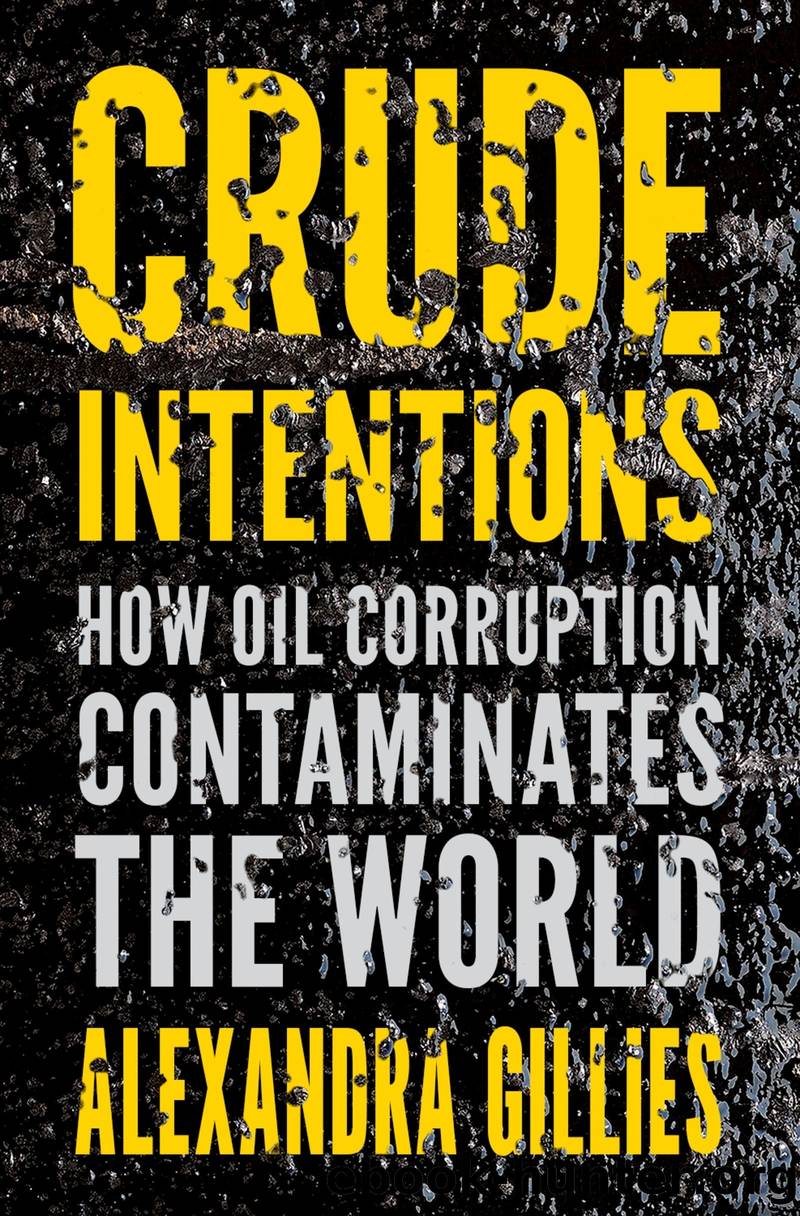Crude Intentions by Alexandra Gillies

Author:Alexandra Gillies [Gillies, Alexandra]
Language: eng
Format: epub
ISBN: 9780190940720
Publisher: Oxford University Press
Published: 2019-11-19T00:00:00+00:00
Part 2: Move the Money
Once the money is captured, corrupt actors turn to the task of getting it out of their home country and into the global financial system. The typical strategy, remarkably ubiquitous across corruption cases these days, is to set up shell companies in a jurisdiction with robust secrecy protections and low barriers to entry. The shell companies then open foreign bank accounts that can receive the funds. Perpetrators often use many layers of shell companies and bank accounts, spread across multiple jurisdictions, to obscure their transactions and frustrate efforts at detection. To manage this complexity, armies of highly qualified lawyers and accountants specialize in orchestrating cross-border financial flows.
The global system of tax havens and offshore finance primarily exists to serve wealthy corporations and superrich individuals. These needs have grown in recent years as the richest households acquire more and more wealth relative to the rest of us. In the United States, for instance, the top 0.1 percent richest adults hold around 20 percent of total household wealth, up from around 10 percent in the 1970s and 1980s.63 The total amount of money stashed offshore is equal to around 10 percent of the world’s GDP. The movement of money offshore inflicts significant costs, especially as these funds escape normal taxation. The EU, for instance, loses around 20 percent of its corporate tax revenues in tax havens, with global losses estimated at 12 percent.64
Some oil-rich countries fare even worse. One team of economists investigated where offshore funds came from. They looked at the world’s thirty-eight largest economies and found that on average, the amount of their money that sits offshore is equal to around 10 percent of their GDP.65 A few oil-rich countries buck this trend. For the UAE, Venezuela, and Saudi Arabia, the wealth held offshore is equal to more than half of their GDPs. Russia’s numbers are also very high. Russian elites held as much as $403 billion in tax havens in 2012. And they’re not alone. Setting up companies in the British Virgin Islands is so popular among Kazakh elites that the tiny island nation ranks among the top five destinations of investment from Kazakhstan, despite the absence of any real business ties between the two nations.66
Certain countries court offshore financial flows, and the economies of the Cayman Islands, the British Virgin Islands, the Seychelles, and other countries depend heavily on the financial services industry. The Financial Secrecy Index defines a secrecy jurisdiction as a country that “provides facilities that enable people or entities escape or undermine the laws, rules and regulations of other jurisdictions elsewhere, using secrecy as a prime tool.” The Index’s rankings feature the usual tropical island suspects but other countries too. Switzerland, the United States (and in particular Delaware, Nevada, and Wyoming), Luxembourg, and Germany also perform badly, for instance, thanks to their subpar policies and important roles in the global financial system.67
American and British service providers have proven more than willing to facilitate shady business. To test how often financial service
Download
This site does not store any files on its server. We only index and link to content provided by other sites. Please contact the content providers to delete copyright contents if any and email us, we'll remove relevant links or contents immediately.
The Secret History by Donna Tartt(16609)
The Social Justice Warrior Handbook by Lisa De Pasquale(11485)
Thirteen Reasons Why by Jay Asher(7782)
This Is How You Lose Her by Junot Diaz(5753)
Weapons of Math Destruction by Cathy O'Neil(5029)
Zero to One by Peter Thiel(4817)
The Myth of the Strong Leader by Archie Brown(4785)
Promise Me, Dad by Joe Biden(4440)
Stone's Rules by Roger Stone(4412)
Beartown by Fredrik Backman(4404)
How Democracies Die by Steven Levitsky & Daniel Ziblatt(4392)
The Fire Next Time by James Baldwin(4336)
100 Deadly Skills by Clint Emerson(4070)
A Higher Loyalty: Truth, Lies, and Leadership by James Comey(4025)
Rise and Kill First by Ronen Bergman(4008)
The David Icke Guide to the Global Conspiracy (and how to end it) by David Icke(3875)
The Farm by Tom Rob Smith(3869)
Secrecy World by Jake Bernstein(3773)
The Doomsday Machine by Daniel Ellsberg(3725)
